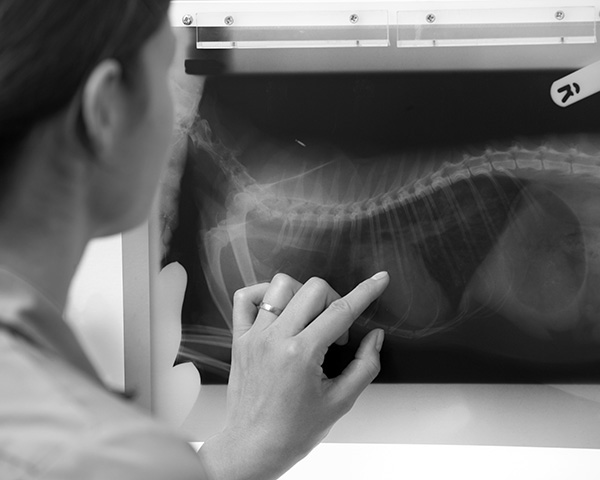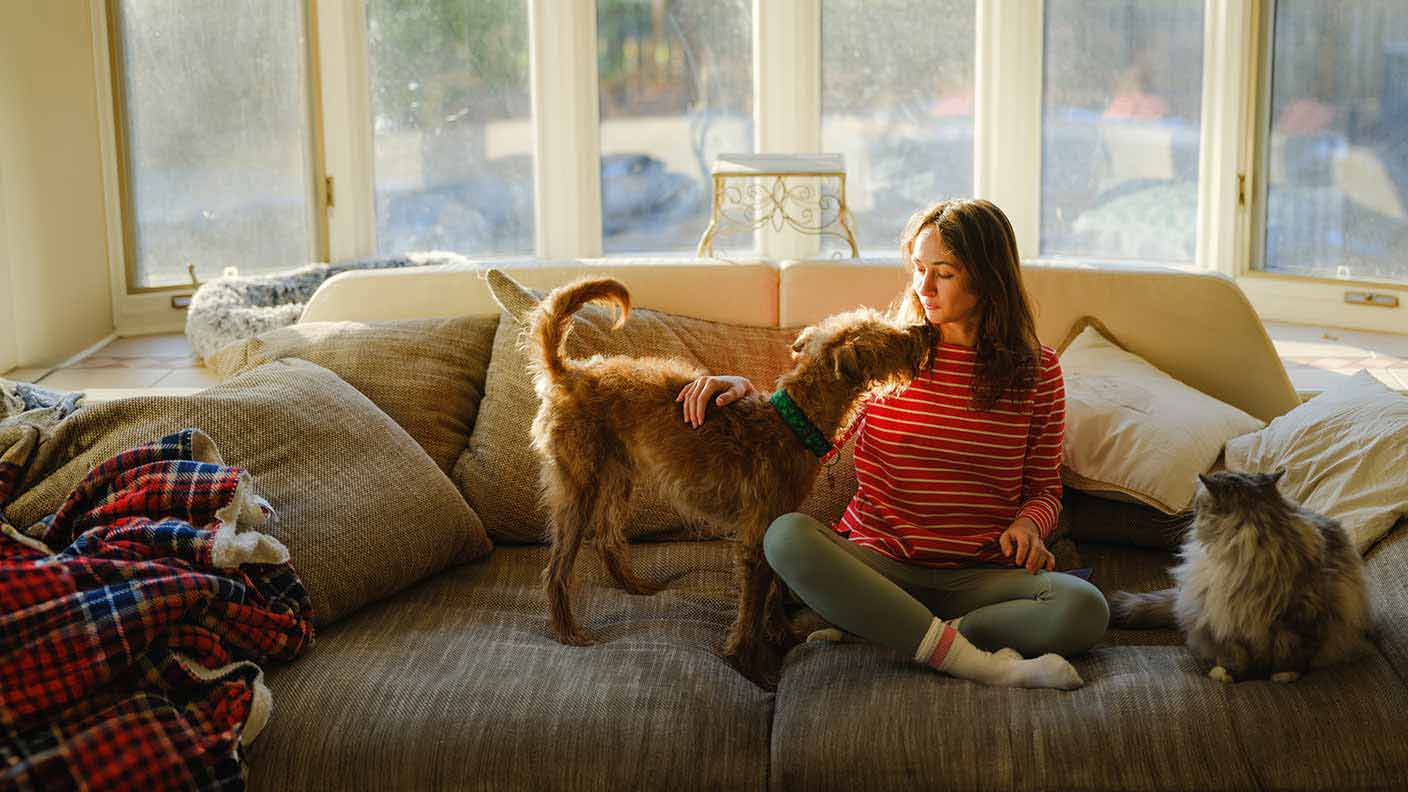Should you take your pets on holiday?
Suitcase packed. Out of office on. It’s time to relax, unwind and jet off on your holidays. But will your four-legged friend be going with you? Or will they be staying at home?
There’s a lot to think about when taking your furry friends on an adventure, like whether they will need a pet passport. Plus, you need to be sure you’re up to speed on the latest travel laws. After Brexit, pet passports issued in Great Britain are invalid for travel to EU countries.
What is a pet passport?
Just like with humans, a pet passport is a document that allows the pets to travel overseas. It enables your furry friends to enter or re-enter the UK and has information including your pet’s:
- Date of birth
- Microchip number
- Vaccination history
Since Brexit, pet passports from Great Britain can no longer be used for travel to the EU or Northern Ireland (NI). Instead, you must use an Animal Health Certificate.
How to get a pet passport
If you are taking your pet on holiday, it’s not only your own travel documents you’ll need to remember – your pets need papers too.
Official pet passports are no longer accepted outside of the UK, but you do still need official documentation.
You will need to obtain an Animal Health Certificate. Additionally, each country has its own animal travel rules that you’ll need to check before you leave.
How to get an Animal Health Certificate
You will need to take your furry friend to the vet for their certificate. It must be signed by an official veterinarian, and they will need the date your pet was microchipped and their vaccination history.
You need to obtain an Animal Health Certificate within 10 days of the date you plan to enter the EU – if your pet is up to date with their rabies vaccinations, or only needs booster doses.
If your pet still needs their rabies vaccination, you will need to wait 21 days after the vaccination date before you can get the Animal Health Certificate.
After it has been issued, the certificate will be valid for:
- 10 days for entry into EU or NI
- Four months for onward travel in the EU
- Four months for re-entry to Great Britain
How much is a pet passport?
A pet passport is no longer valid for travel outside of the UK, but an Animal Health Certificate can cost over £100. You need one for each time your pet travels from Great Britain to the EU or NI.
Travelling in the UK
The car might be a convenient way to transport pets within the UK but remember they can also travel on the train and some buses (however, coaches usually don’t accept pets).
Whichever mode of transport you choose, the RSPCA recommends that you:
- Take regular stops to let your pet answer the call of nature and stretch its legs (even when you’re on a train)
- Provide access to fresh water and food at your pet’s usual mealtimes
- Keep cats in a robust and secure carrier, allowing them to sit and stand up at full height, turn round easily and lie down in a natural position
- Ensure your pet has plenty of ventilation – don’t leave pets inside cars on hot days
Taking your pets to the EU and Northern Ireland
Whether you’re travelling to Barcelona or Bruges, your pet has to meet specific requirements when travelling across countries in the European Union (EU) or returning to the UK from another EU or non-EU-listed country.
The rules vary according to the country you're going to or coming from. You may find Gov.uk's guide on taking your pet abroad useful – and you can always ask your vet for advice.
As a minimum, you’ll need to ensure your pet is up to date with:
- Microchipping
- Rabies vaccinations (make sure your pet is microchipped first or the vaccination won’t count)
- Tapeworm treatments (for dogs)
Travelling to non-EU countries
If your precious pooch or fluffy feline is lucky enough to be joining you on your long-haul adventure, there are some extra things to keep in mind.
Your pet will need:
- An export health certificate (EHC)
- An export application (EXA) form if you’re in England, Scotland or Wales
To ensure things go smoothly make sure to check the requirements of the specific country you’re travelling to.
Can you take pets on ferries and planes?
Most ferry companies will allow pets to be taken on board, so if you’re travelling to your holiday destination by boat, it should be plain sailing. Depending on the ferry, your pet will either travel in a pet-friendly cabin with you, in onboard kennels or in your vehicle.
Planning on flying with your pet? All airlines have different policies, but dogs can usually fly with you – either in the cabin or the hold. You’ll need to check with your specific airline for their regulations.
Choosing who to look after your pet
When it comes to choosing a pet sitter to look after your pet, there are two main options:
Friend or relative
A friend or family member will likely be cheaper than paying for boarding accommodation while you’re away. They might also know your pet well and be comfortable with them.
If they’re not available for your pet 24/7, you could consider using automatic feeders, like timed cat feeders or holiday rabbit feeders. But even if you do use one of these, it’s still important that your pet isn’t left alone for a long period of time.
Of course, there is one downside to relying on friends and family – they may not be available to cover the dates while you’re on holiday.
How to choose a kennel, cattery or rabbit retreat
If you decide to book your pet into a boarding kennel, cattery or rabbit retreat while you’re away, you’ll want to make sure they’re in the best place possible.
Before you decide, here are some questions you may want to consider:
- Have any friends used catteries, kennels or rabbit retreats before? How do they rate them? How much did it cost?
- Can you visit the place in person so you can get a feel for it? Could you arrange a trial day for your pet?
- How much time do the staff spend with your pet each day? Do they groom or walk them?
- Are there any discounts or offers available if you have more than one pet?
Before you go on holiday pet checklist
Whether you decide to take your cat, dog, or any other pet travelling abroad with you, or leave them at home, proper preparation will go a long way.
Before you head off on your travels, check your pet’s immunisations are up to date, its claws are trimmed, and its coat is washed and clipped.
Checklist for your pet sitter or boarding accommodation
If you're leaving your pet behind, make sure the boarding accommodation or person looking after your four-legged friend has the following:
- An emergency contact number for you
- Information on your pet's diet, mealtimes and exercise regime
- Any bedding, bowls and toys your pet is familiar with
- Details of the microchip database in case your pet gets lost or stolen
- Information about any of your pet's behavioural traits and temperament
Protection for your pet
If you protect your cat or dog with Sainsbury’s Bank Pet Insurance, we’ll make sure they’re protected while you’re abroad – whether they’re with you or not.
These cover options are only available with our pet insurance for cats and dogs – they’re not included with our rabbit insurance.
Provided by Pinnacle Insurance Ltd.
Holiday cover
Whether you’re sightseeing with your Siamese cat or enjoying a beach break with your Beagle, our holiday cover will give you:
- Cover for overseas vet fees
- Help with quarantine costs due to illness or misplaced travel documents
- Cover for additional accommodation bills if your pet is lost or too ill to return as scheduled
- Help towards the cost of replacing pet travel documents if they’re lost or stolen
Holiday cancellation cover
Even if you decide to leave your pet at home, we’re still here to help. With our holiday cancellation cover, we’ll help towards covering the cost of any lost travel and accommodation expenses – up to the maximum benefit. You’ll be covered if you have to cancel your holiday if your pet goes missing or needs life-saving treatment while you’re away.
Helpful pet guides
Looking for some light holiday reading? Check out our handy guides for you and your pet.

Pet health and wellbeing
Help keep your pet healthy and happy – at home or abroad.

What else am I covered for?
See how microchipping can help find lost or stolen pets.

Pet insurance explained
Get to grips with the typical types of pet insurance
Any questions?
We’ve got the answers to our pet insurance customers’ most common questions.
Frequently Asked Questions
Can I get an EU passport for my pet?
No, if you’re travelling from Great Britain to the EU, you cannot get an EU pet passport. Instead, you will need an Animal Health Certificate for each trip you take to the EU or NI.
Are UK pet passports still valid?
If it was issued in Great Britain, UK pet passports are not valid outside of the UK. Instead, you will need an Animal Health Certificate. You will also need to ensure that you comply with the travel guidelines of the country you’re going to.
Can dogs go on the Eurostar?
Pets are allowed on the Eurostar on routes between the Netherlands, France, Belgium and Germany. Pets over a certain weight will need a specific dog fare ticket. Only assistance dogs or cats can join on routes to or from London or Eurostar Sun and Snow routes.
Ready to protect your pet?
If you’d like to get a quote for your pet insurance, you can get started right away. If you’re ready, we’re ready.
Terms and conditions
Important information
Sainsbury's Bank plc, Registered Office, 33 Charterhouse Street, London, EC1M 6HA (registered in England and Wales, no 3279730) is authorised by the Prudential Regulation Authority and regulated by the Financial Conduct Authority and the Prudential Regulation Authority (register no. 184514).
Sainsbury's Supermarkets Ltd is an appointed representative of Sainsbury's Bank plc. Sainsbury's Bank plc acts as an introducer to Pinnacle Insurance Ltd who is authorised by the Prudential Regulation Authority and regulated by the Financial Conduct Authority and the Prudential Regulation Authority (register number 110866). Registered office: 4th Floor, Limelight, Elstree Way, Borehamwood, Hertfordshire, WD6 1JH. Sainsbury’s Bank Pet Insurance is arranged, administered and underwritten by Pinnacle Insurance Ltd. Sainsbury's Bank plc and Pinnacle Insurance Ltd are not part of the same corporate group.
We do not provide personal recommendations to customers.
